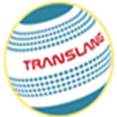Focus and Scope
Focus Areas & Topics of Interest
 Traduction et Langues Translation and Languages
Traduction et Langues Translation and Languages
Traduction et Langues TRANSLANG Journal is an international, peer-reviewed journal dedicated to research in all areas of translation, interpreting, and multilingual communication. The journal publishes both original research articles and practice-oriented studies, drawing on a wide range of disciplines that share a focus on understanding and advancing translation and language-related practices in diverse contexts. The primary objective is to enhance research approaches and promote insights gained from other multidisciplinary and interdisciplinary efforts, thereby fostering a deeper understanding of the multidimensional nature of research in and on translation, interpreting, language, and linguistic studies.
Globalisation, international mobility, and the rapid development of digital technologies have transformed how languages are learned, translated, mediated, and taught. These changes affect not only how translation and multilingual communication are conceptualized, but also how translators and language professionals are trained, how translation quality is evaluated, and how designs and research methodologies are adapted. The journal provides a forum for critical reflection on these shifts and encourages contributions that explore the theoretical, pedagogical, and technological dimensions of translation and language research.
The journal will be of interest to scholars, practitioners, and educators engaged in Translation Studies, Applied Linguistics, and Multilingual Education. Its aims are:
-
To publish research on the theoretical, methodological, and applied dimensions of translation and multilingual communication;
-
To encourage the dissemination and cross-pollination of innovative practices, policies, and pedagogies in translation and language education;
-
To provide a space for exploring how translation and language use intersect with wider social, cultural, and technological changes.
The concept of innovation is interpreted broadly, and may include innovation in translation theory, practice, policy, pedagogy, or methodology. We emphasize the importance of contextualising innovation, recognizing that what constitutes innovation may differ across well-resourced and less-resourced environments. Authors are therefore encouraged to be explicit about how their work represents innovation in its particular context.
The scope of the journal is deliberately interdisciplinary. Contributions may draw on areas such as Translation Studies, Interpreting Studies, Corpus Linguistics, Digital Humanities, Applied Linguistics, Multilingual Education, Artificial Intelligence, Cognitive and Neurolinguistics, Intercultural Communication, Terminology Studies, and Human-Machine Interaction.
TRANSLANG Journal accepts two types of articles:
-
Research Articles (up to 10,000 words, or 12,000 for research articles), reporting on theoretical, empirical, or applied studies in translation, interpreting, or language-related fields;
-
Book Reviews and Reports (2,500–3,000 words), addressing innovative and recent topics of inquiry in translation, interpreting, and multilingual communication. These may include critical reviews of newly published works, reports on emerging practices, or evaluations of significant developments in the field.
Possible topics include, but will not be limited to:
- Translating world cultures
- Translation as a work of art
- Human sciences and translation
- Translation, a profession, a know-how, a know-how to be.
- Interdisciplinary paradigms in translation didactics.
- Translation and the editorial chain
- Neural machine translation and deep learning
- The translatology of the future
- Interdisciplinarity and Transdisciplinarity in Translation Studies
- Translating Sacred texts
- Interpretation in all its states.
- Lexicology, Terminology, Lexicography, and Translation
- Languages and Linguistic Studies
- Comparative Studies in Literature and Culture.
- Philology and comparative grammar.
- Applied Linguistics
- Contrastive Analysis and Discourse (s) Analysis
- Interdisciplinary Studies in Pragmatics, Culture, and Society
- Interdisciplinary Approaches to Language, Culture, and Translation
Specific topics include, but will not be limited to:
- Corpus Linguistics and Concordancing
- Use of corpora in translation and language teaching
- Concordancing tools in translator training
- Corpus-based translation studies
- Building and analyzing parallel and comparable corpora
- English as a Medium of Instruction EMI
- Pedagogical challenges and opportunities in EMI contexts
- Language policy and EMI in non-Anglophone settings
- Teacher and student perspectives in the context of EMI
- EMI and disciplinary language practices
- English for Specific Purposes ESP
- ESP course design and materials development
- Needs analysis in ESP contexts
- ESP for legal, medical, technical, or business contexts
- Translation and ESP intersections
- Translation Technology and Digital Tools
- CAT tools and machine translation evaluation
- Post-editing practices and quality assessment
- Human vs. machine translation in professional settings
- Digital lexicography and terminology databases
- Audiovisual Translation and Media
- Subtitling, dubbing, and voiceover
- Accessibility (audio description, subtitling for the deaf)
- Translation in streaming media and gaming
- Multilingualism and Language Policy
- Language policy in education and public institutions
- Translanguaging in classrooms and multilingual communities
- Linguistic landscapes and translation in urban spaces
- Translation Pedagogy
- Innovative methods in translator/interpreter training
- Assessment in translation and language programs
- Collaborative translation projects in the classroom
- Intercultural Communication and Pragmatics
- Translation of cultural references and idiomatic expressions
- Pragmatic transfer and equivalence in translation
- Culture-specific challenges in interpreting
- Genre and Discourse Studies
- Genre analysis in ESP and translation
- Discourse analysis in professional and academic contexts
- Legal and institutional discourse in translation
- Translation Ethics and Sociopolitical Dimensions
- Authority, Voice, and Inequality in Translation Contexts
- Ethical dilemmas in community and crisis interpreting
- Translation and censorship
Submission Requirements
All submissions must demonstrate originality, theoretical grounding, and relevance to the field.
Peer Review Policy
All manuscripts are subject to double-blind peer review by at least two experts in the relevant field.
Open Access Policy
All manuscripts are published as Gold Open Access, ensuring immediate and free availability to readers worldwide.